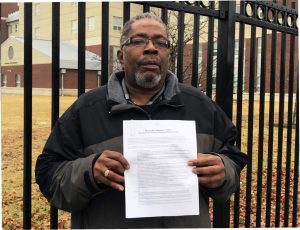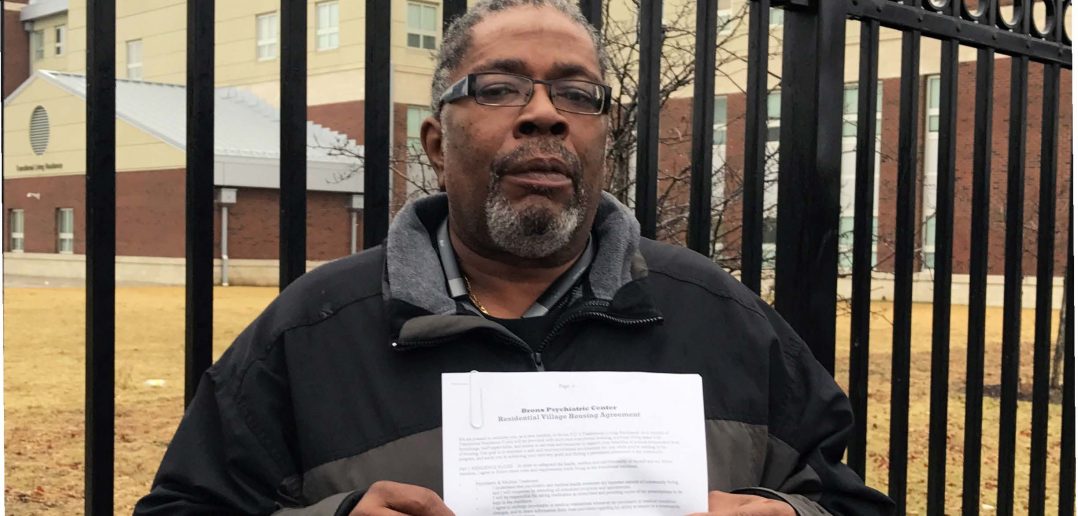BRONX — The recent arrest of a client residing at the Bronx Psychiatric Center has once again raised concerns about the state providing adequate resources not only to treat people with mental illness, but to ensure public safety.
The client, a registered sex offender with numerous rape and sexual abuse convictions, was arrested for allegedly stalking and raping a 64-year-old woman who uses a walker. He had been living at the center’s Transitional Living Residence (TLR).

Bronx Psychiatric Center Local President Abraham Benjamin stands in front of the Transitional Living Residence holding one of the contracts clients are required to sign and abide by.
“The (TLR) program is a good program if they run it the way it was designed,” said Abraham Benjamin, Bronx Psychiatric Local president. “I want it to be effective, but we need the right kind of individuals in these programs.”
State psychiatric hospitals, including Bronx Psychiatric Center, provide outpatients with a “transitional living residence” for those clients who can live alone but still need some assistance before assimilating into the community.
When they were created, the transitional living residences received clients who were screened, signed a contract where they agreed to take their medication, attend programs that helped them assimilate into the community and observe rules and regulations for the residence.
However, within the last decade or more, clients have been pouring into the residences directly from the criminal justice system.
“We’re talking about people that have been discharged directly from jail to a TLR and you can’t get them to do anything,” said Michael June, a mental health therapy aide at South Beach Psychiatric Hospital on Staten Island.
“They come to us in handcuffs, with dual diagnosis, chemical dependency and psychiatric problems.”
There are generally 24 clients in a TLR ward and two workers at most. At Bronx and South Beach Psychiatric Centers, no fewer than half a dozen registered sex offenders reside. Many, like the one arrested, often come and go as they please, don’t take their medication and don’t follow the rules they agreed to in the contract.
Some of these clients have brought weapons into the residence or have assaulted or committed other lewd acts inside the residence. When these instances are reported, the clients may be arrested and detained briefly but given their mental health history, they are usually returned to the facility within hours.
“When you have a client who has prior arrests, a long rap sheet and is not concerned about his actions because he’s allowed to return to the facility, it emboldens them,” said June.
It also puts workers and other clients at risk, said Benjamin.
“It’s a disservice to the individuals we’re serving because we are not giving them the help they need,” said Benjamin. “We want our individuals to assimilate back into the community but we have to give them the tools. Instead it’s creating dangers for them, the workers and the community.”
— David Galarza




